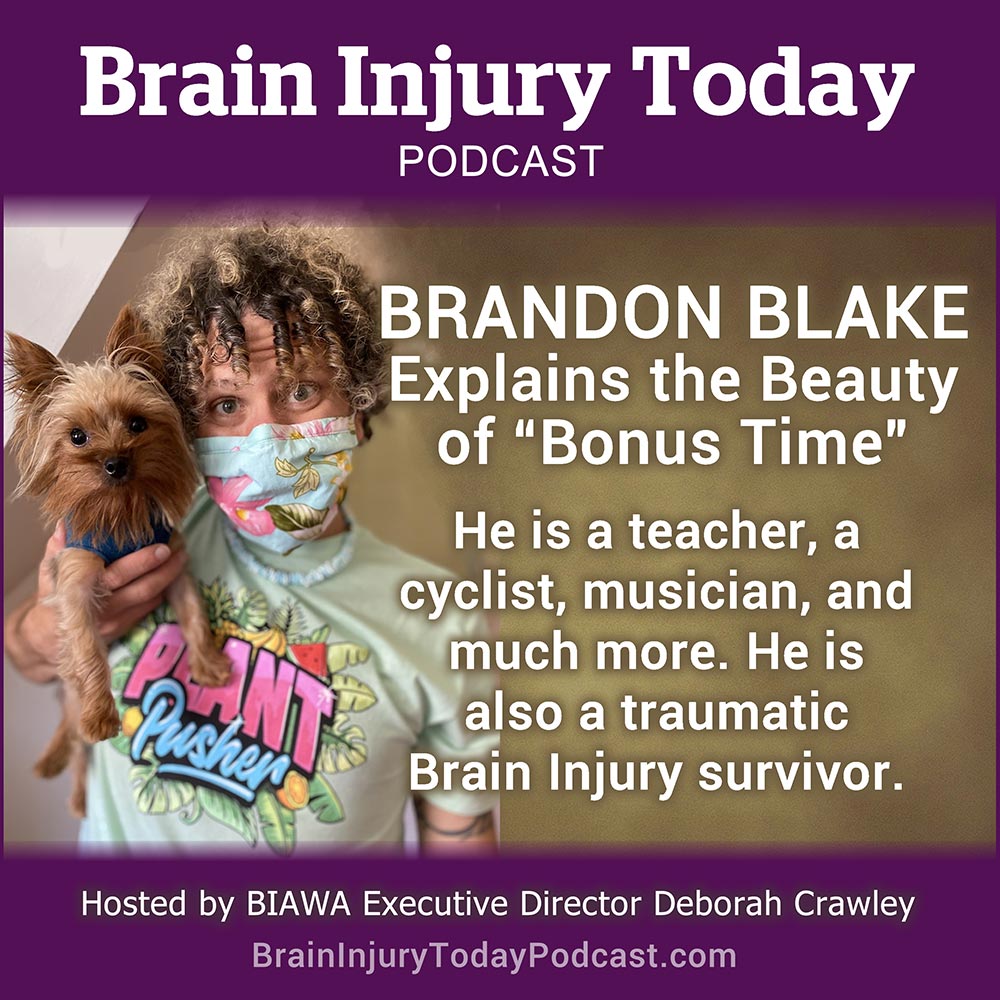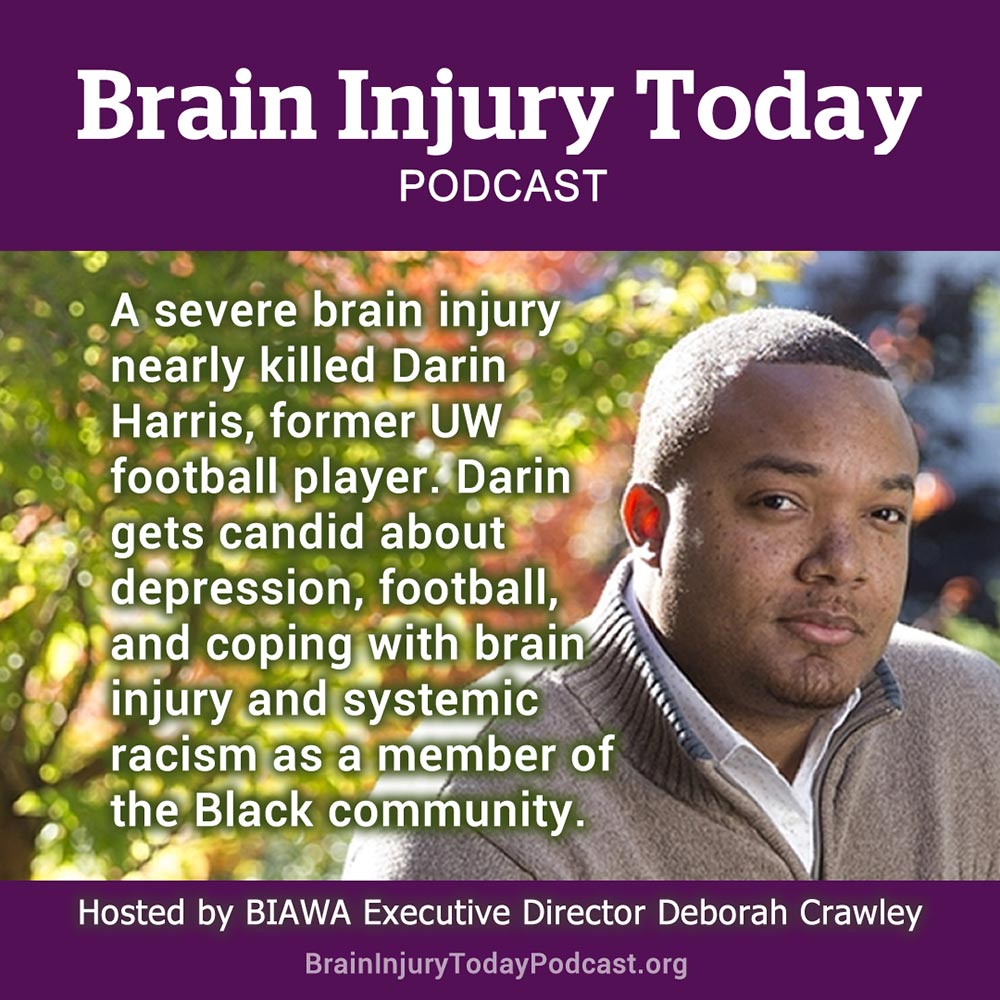Page - Brain Injury Stories
COURTNEY
Taking Control with a Smile
Courtney Barbour’s story is a lesson in the power of optimism.
She was born purple due to the umbilical cord that was wrapped around her neck. In subsequent years, her mom had noticed that her walk wasn’t typical, but didn’t associate it with anything more serious.
When she turned five, she tumbled down a flight of stairs. The examining doctor’s diagnosis surprised Courtney and her parents: She had Cerebral Palsy (CP). As a result, she has been involved with various programs to help her overcome neurological and physical obstacles.
Courtney, who turns 30 in a few months, has loved being in the year-round Foundation for Senior Living (FSL) Day Care program. Since it’s an integral part of her routine, it’s no wonder she was extremely disappointed when it closed from March through September.
She had to move back home full-time in December since testing positive (asymptomatic) for the virus. FSL has subsequently closed its doors due to the spread of the virus.
Courtney has dealt with being at home by focusing on what she can accomplish versus that which is beyond her control.
Her biggest disappointment this summer was not being able to attend her beloved D-backs’ games. This Miracle League All-Star Game’s MVP loves baseball and can’t wait to be back in the stands and on the field.
But perhaps the most important hours of her week are those volunteering at Children’s Ministries. “I help with crafts, answer questions from newcomers, just about everything. It’s important to me to have this to look forward to every weekend.
“They love me and that’s such a great feeling.”
Courtney’s message to those with and without brain injury is simple. “Reach out to friends and hang in there. 2021 will be better.”
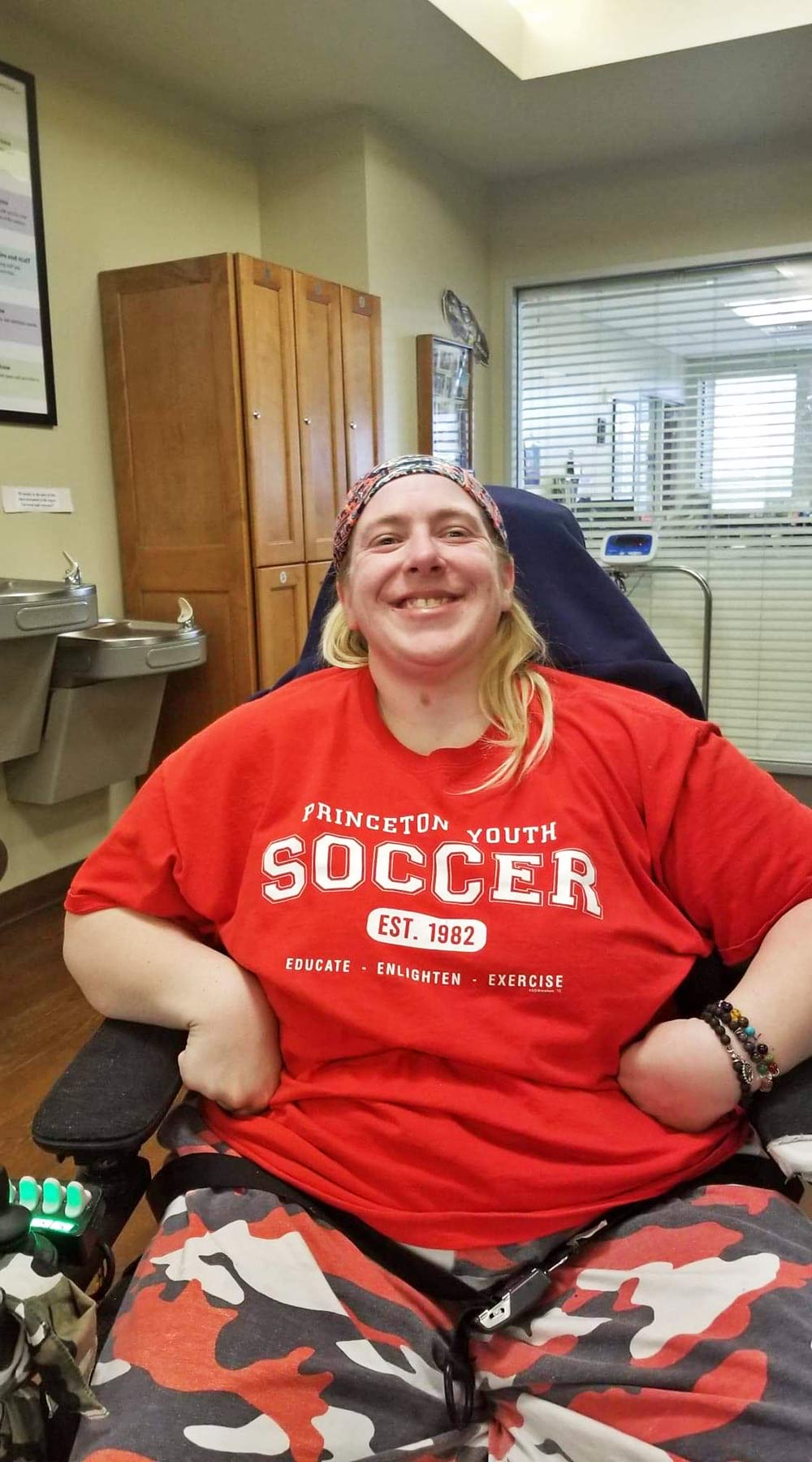
LAURA
Making Connections is the Key
Laura Johnson isn’t just the Director of the Unmasking Project for the Brain Injury Alliance of Arizona (BIAAZ), she’s also a survivor of brain injury.
In December 2007, Laura sustained a brain injury after a nasty fall. Since then, she has dealt with issues all too familiar to other survivors. Brain fog, Trouble with concentration. Difficulty sleeping. And although she never tested positive for COVID-19, the virus has definitely affected her.
“It feels like COVID is always in the back of my mind,” says Laura. “So I end up spending almost all my time at home.”
Since she was especially susceptible to depression, she has made it her priority to stay connected with her support system. “I stay in touch with family and friends, It really helps to know we all share the same frustrations and anxieties.”
“I’ve also not been bashful about staying in close touch with my rehab team and therapist. It’s so much more convenient now with the use of telemedicine. This has been a life-saver for me and many others.”
Laura also tries to adhere to limits she sets for herself. “Because of my brain injury, there were times I’d be driving around and would just start crying. Then I realized if I needed to rest, I needed to rest.”
There were no family gatherings this holiday season, either, but that turned out to be a mixed blessing. On one hand, she missed celebrating with her family. On the other hand, it was a lot easier. “There was no shopping, set up, cooking, or clean-up.”
And despite not being able to enjoy certain traditions, she was able to rendezvous with family members in their driveways. This way, she could see their happy faces as they picked up their gifts.
“All in all, It all turned out pretty well, or as well as could be expected.”
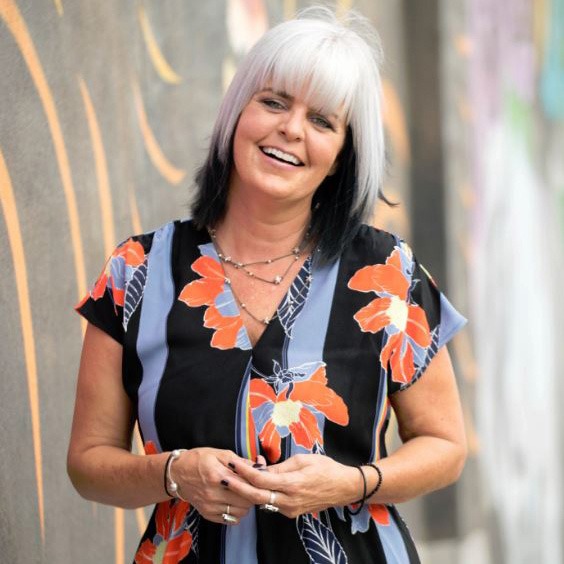
MATEO
Mateo Tree Top is a Hunkpapa Lakota Tribal member of the Standing Rock Lakota Nation from Ft. Yates, North Dakota and now lives in the Salt River Pima-Maricopa Indian Community near Scottsdale, Arizona. At five months old, Mateo suffered abusive head trauma (also called “Shaken Baby Syndrome”) which resulted in a traumatic brain injury. He was placed into Special Education classes until 7th grade, when he and his mother fought for Mateo to be able to attend regular classes. He had to work harder than his peers, but he graduated Westwood High School in Mesa, AZ with perfect attendance and on the Principal’s Honor Roll.
At 22, he is now a full-time college student at Scottsdale Community College. Mateo’s heritage has been important to his journey, and he is now an advocate for Native youth and a member of the Arizona Youth Leadership Forum.
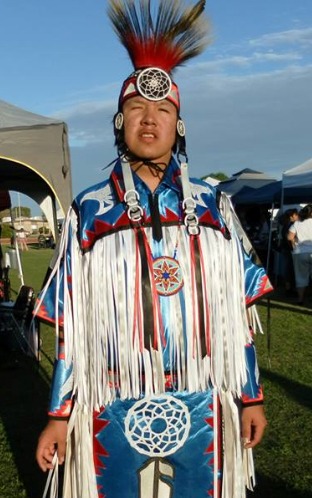
MARIA
Community and Attitude are Everything
In March 2019, Pueblo Brain Injury, LLC was transitioning and completing its first year with a grant received by MINDSOURCE Brain Injury Network. It was exciting to provide weekly classes, workshops/presentations, and awareness about brain injury survivors to Pueblo, CO and neighboring communities.
March 2019 was also the start of a deeper meaning for the phrases of social distancing, “wear a mask” and “wash your hands” – a new minute-to-minute ever-present challenge for the world. Virtual platforms globally reshaped our sense of appropriate social connection.
Monitoring the Brain Injury Alliance of Colorado’s website, I connected with other brain injury (BI) support group leaders in cities such as Eagle, Colorado Springs, and Edward followed by other brain injury survivors/advocates such as Brian Blair from Littleton, CO. This expanding Colorado brain injury community allowed for collaboration statewide and strengthened a unified goal of perseverance and growth through solidarity. I am always grateful when I see a new face or a returning face on the when connecting virtually.
To entice BI survivor and caregivers’ enjoyment, we’re using renowned musicians and comedians, from the regional to national level to internationally recognized talent. Within months, we had set up a weekly game day, creative writing class, general online chat, alternating art/cooking days and provided multiple local and national resources.
This exploration has revealed varied findings among BI communities. We found positive feedback from BI survivors regarding COVID-19:
”My house way more clean now!”
“The classes have been good; it helps me, my son is home from school, I’m closer to my son.”
“There seems to be a slight additional hollowness – something like an echo – within my BI and being regularly stuck at home. But now I know I’m not alone in many ways, and maybe others will understand me better. I get to see my wife a whole lot more.”
“My dog senses uncertainty but is so happy that I’m by her side day in and out!”
“I have a better understanding of people around me – not personally… I just know now that everyone is going through something. And their personal something may be something unseen, like mine. Now we all get to share something. Yay?”
My Name is Maria. I am a brain injury survivor/advocate/mentor and owner of Pueblo Brain Injury LLC in Pueblo, CO. I connected with Brian Blair, brain injury survivor/advocate, shortly after statewide announcement of the virus. Brian agreed to collaborate with me to create support and positives stemming from COVID-19. I have never met him in person, but quickly came to appreciate him and his family, and am grateful our paths crossed through social virtual connection. We assist others and mentor one another as survivors during this COVID-19 experience.
Well Brian, what can I say? We’ve been decent flotation devices for BI’s adrift in 2020. Hopefully we’ll be safely ashore in 2021. Doesn’t mean we have to stop there.
– Maria Martinez
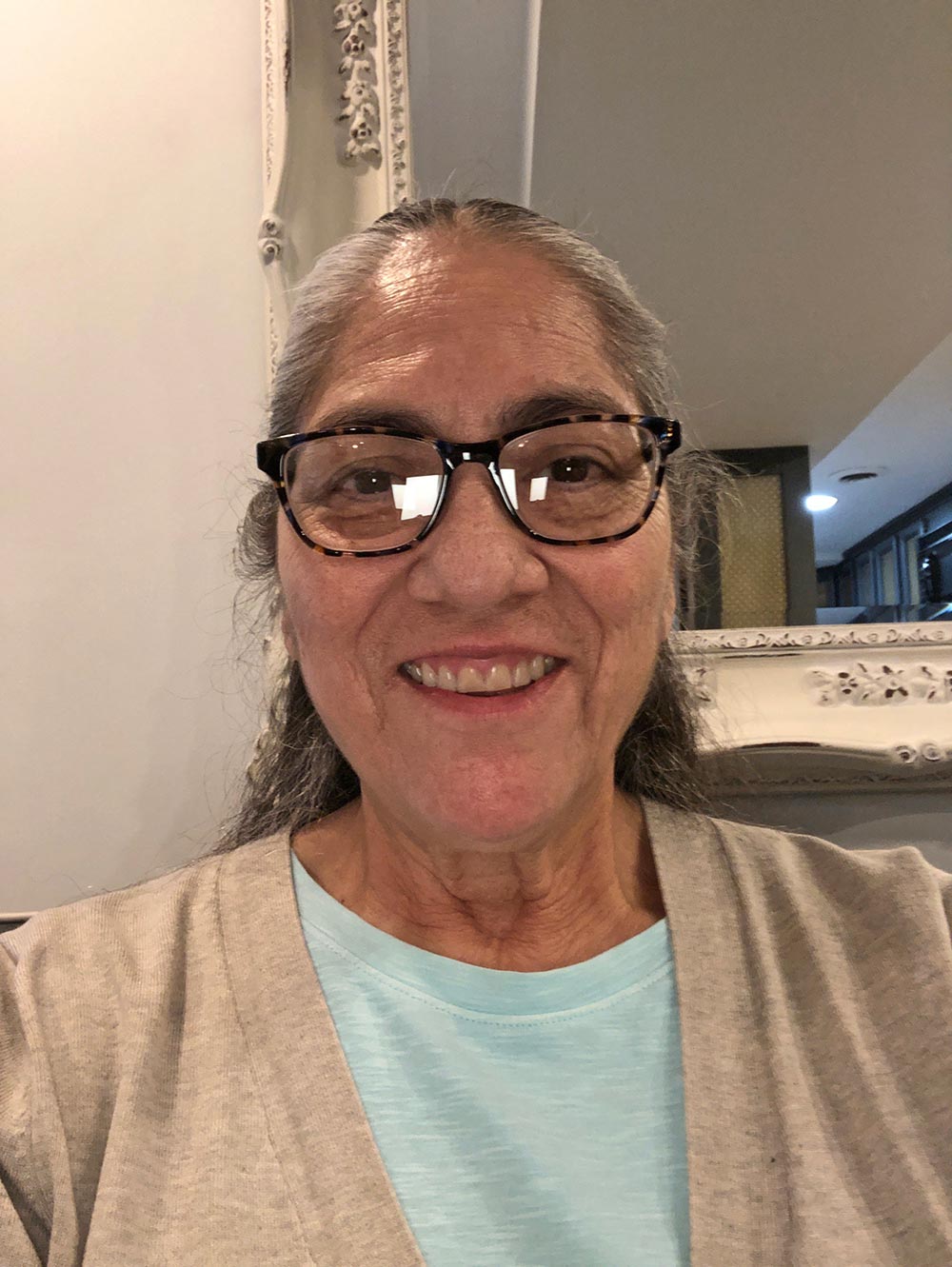
TERESA
Before COVID-19, I was just establishing care and therapy in my life for the first time after 15 years of being misdiagnosed and extreme frustration. I had just connected with the right psychiatrist who began connecting me with the right specialists. Normally, using the Medicaid system could have been very frustrating. However, my practitioners used the well-established system to make sure they were able to open communications between specialists. They made sure services and tests that were needed were ordered, accessible and paid for. We began in January and all services were still made available as COVID-19 hit. The necessary care I needed did not diminish. I know this may have been an exception, but those involved in my care remained exceptional. This made a seemingly impossible task possible. Using the tools available with technology and social media, I made more progress than I ever knew possible. It also helped that I was able to use the isolation demanded by COVID-19 to rest in between therapies while limiting and picking and choosing “screen time” to only times that had significant impact on my healing.
Another positive result experienced during COVID-19 is that other services, programs, classes and groups that were available became adapted to be available online. In some sense, classes actually became more accessible. For example, I was able to attend a class normally offered in Denver even though I lived in Fort Collins and my BIAC mentor who lives in Loveland was still able to connect with me. My therapy and other programs also became more flexible. I could meet with my therapist who is in Fort Collins no matter where I was (in the park, in the mountains, in Kansas City, etc.). All of this actually gave me a lot more flexibility and a lot less stress.
Tapping into community and services with technology and social media contributed to the progress in my healing journey since COVID-19. However, another major source of healing was prioritizing and maintaining critical health/fitness habits. Having access to the outdoor parks, open spaces, and trails created the opportunity to capitalize on getting fresh air and exercise. Escaping into safe quiet spaces allowed restorative movement and grounding. Connecting with the reliability and resiliency of nature inspired growth in many areas of my life.
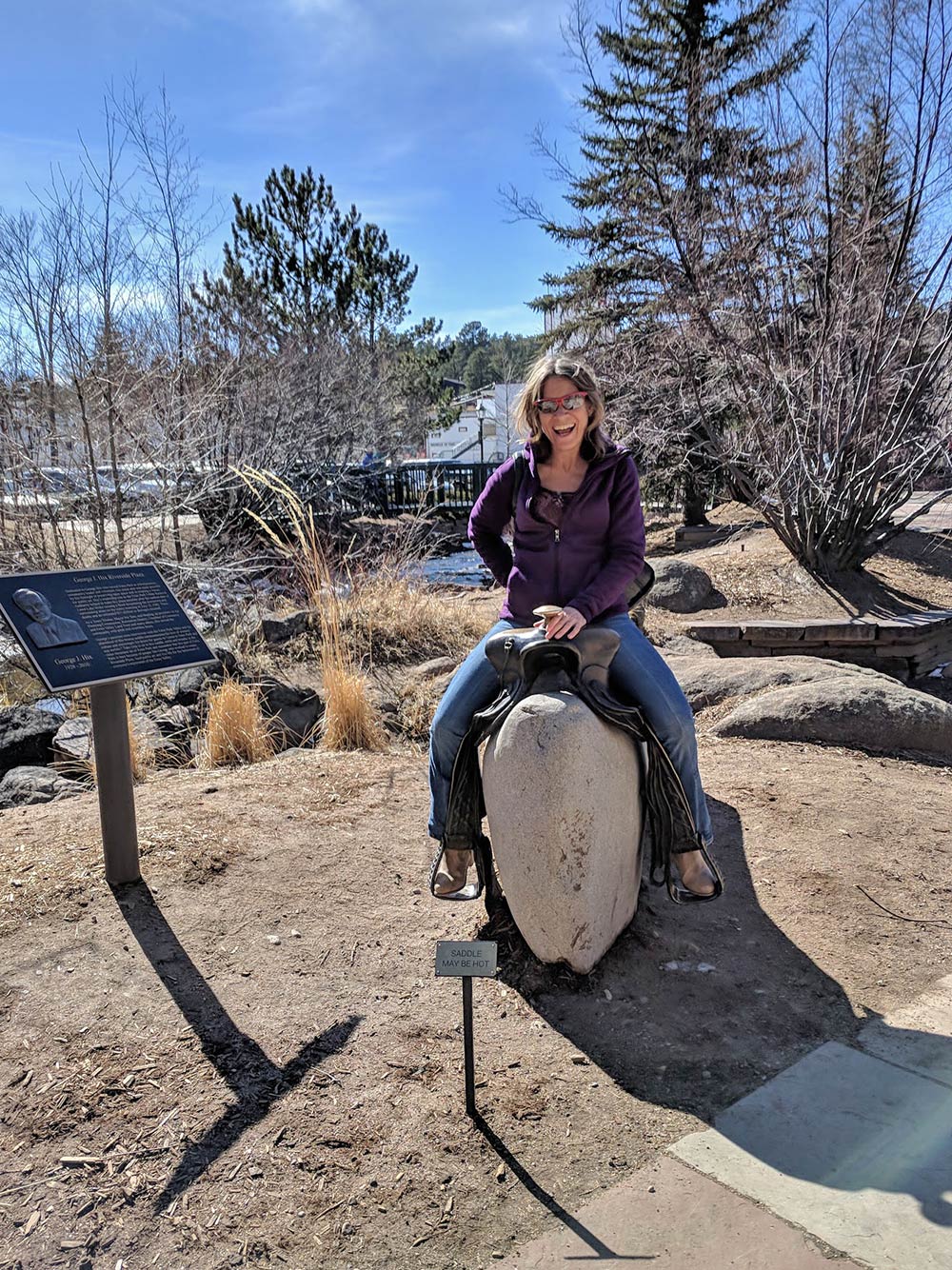
DEVON
I am a U.S. Military Veteran, a husband, and the father of four beautiful children. Who would have thought that the brain injury I sustained as a U.S. Marine during Operation Iraqi Freedom would lead me to the work I do today as a Brain Injury Specialist at the Brain Injury Alliance of Connecticut (BIAC)? This injury occurred during active military service after being knocked backwards and losing consciousness as a result of a mortar blast.
My brain injury remained undiagnosed for nearly 8 years while I searched for answers and effective treatment for my severe headaches and other lingering effects of my injury. The stress and frustration of continually looking for answers and not feeling supported by the medical community, the immense paper trail, and trying to find the right combination of medications to address my headaches and nerve pain really started to take its toll, not only on myself, but on my family. As a husband and father, I felt a responsibility to do everything within my power to improve my situation and not let my injury define my life. I am happy to report that I am in a much better place, and feel blessed that I am able to assist individuals with brain injuries and their families.
I have traveled the same journey as many of our clients, and understand their challenges, pain, and exasperation as they navigate their “new normal.” In the calls I answer on the BIAC Helpline, I listen with empathy, validate the stories I hear, and connect individuals and families with important resources that I wish I had been able to access early on. Listening to their stories also helps me cope with my own situation.
The global pandemic has turned our world upside down, forced BIAC staff to work remotely and use virtual tools to help us deliver our programs and services. BIAC’s primary objective has been to ensure that no one needing our resources is under-served. The free Helpline ramped back up quickly and has taken 1,000 calls in the last fiscal year. I have assisted our network of Support Group facilitators with maximizing technology to keep their peer groups connected, and help them develop relevant topics to cover issues brought about by the pandemic, including dealing with technology, isolation, financial crisis, and loss.
An interesting “silver lining” brought about by COVID-19 is that I am witnessing more balance in the lives of many of the individuals and families I serve. Many are finding they prefer to work from home, appreciate the flexibility to work during their best times of day, and avoiding crowds is actually a pleasure. Having a less rigid schedule allows them to sleep when they are tired, eat when they are hungry, disconnect when they aren’t feeling well, and experience less stress, overall. There are also a number of benefits of Support Groups going virtual, with clients reporting that the groups are more accessible, they can join multiple groups, or participate more frequently. They don’t have transportation worries, or concerns about driving at night. Working within the options we do have has brought a lot of comfort to many, and as a community resource, I feel like we have never been needed more than we are now. I also have hope for the future, and look forward to my expanded role in the coming year delivering professional training and education, strengthening the network of brain injury specialists in our state.
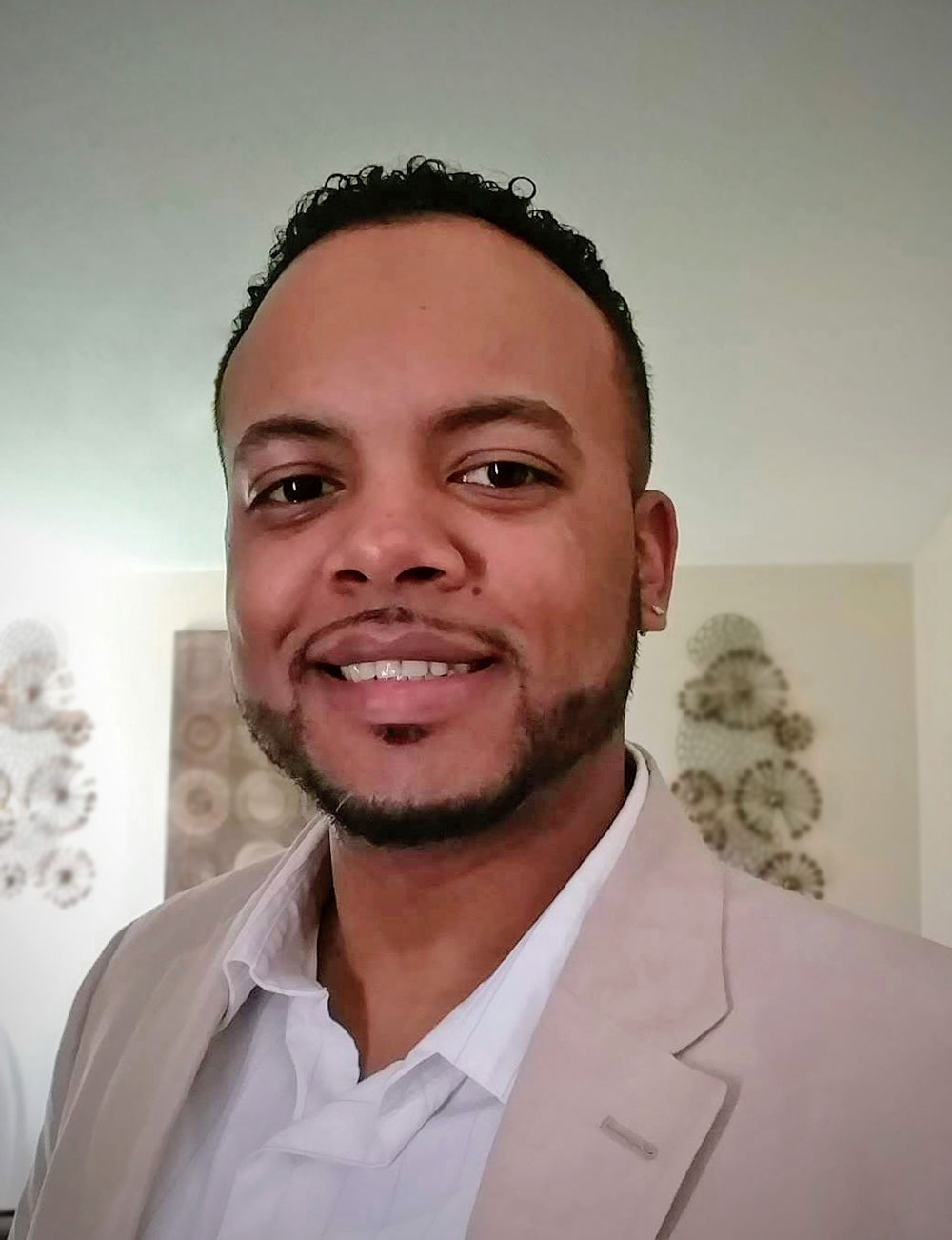
BOB
I am a Traumatic Brain Injury survivor and a member of the BIAIA. Even though my accident occurred in Iowa in 2003 (past tense), my Traumatic Brain Injury is still with me (present tense). I am reminded of my injuries each and every day. People often ask me if I have recovered…which I find to be odd. I believe one does not “recover” from a brain injury. One can only rebuild…to be thankful they are still alive and try and discover a new source of strength to help them progress and adjust to this new life.
Unlike other articles I’ve read on the inner feelings and emotions of a brain injury survivor, the “Unmasking Brain Injury” article by Courtney Sand in the April edition of Brainstorming finally put into words so much of the daily struggle survivors like myself encounter each and every day. She did such an excellent job into describing the hurt and turmoil each brain injury survivor may and oftentimes do experience. One of the most difficult obstacles survivors, like myself, encounter, is how to overcome the reality of the “before” and the “now”. “…to grieve the loss of a person who is still alive”. Some of my survivor friends never seem to be able to advance to the “now” stage and are left in a state of turmoil and regret on how things used to be. It can be such a difficult journey as so many of the masks on display revealed in their personal statements. A very humbling and touching experience. The article ended with some thoughts by Daniel Koepke. Both Courtney and Daniel have a talent and insight that enables them to fully express, in their own words, the emotional struggles that can exist inside a survivor’s inner self…their being. Their new and altered “sense of self”.
I was able to attend the April “Run, Walk, and Roll” event. It gives me a chance to greet old friends from the Iowa City Survivors group. I miss them and the great times we had at our meetings. I now live in Platteville, Wisconsin. I no longer have the same level of access to the talented and remarkable survivor network professional that was available in Iowa City, Cedar Rapids, and Iowa. My survivors group was a source of strength for me…a beacon of hope and help during sometimes stormy seas. People such as Geoffrey Lauer are a treasure to your organization. Keep up the excellent work. You are all missed and loved.
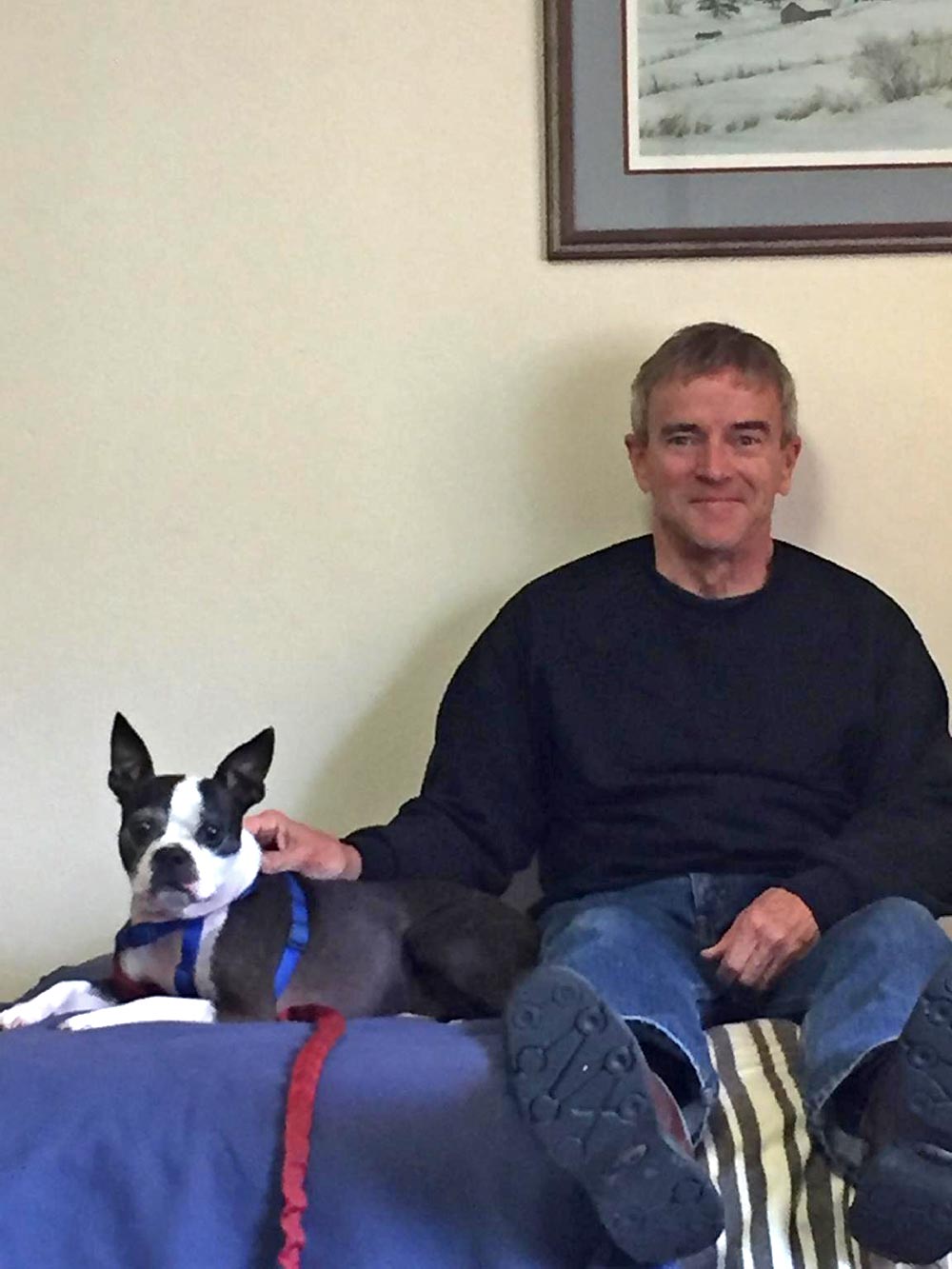
ZORINA
Zorina experienced multiple concussions throughout middle and high school. By the time she started college, she had at least five. In September of her freshman year, Zorina hit her head on a bunk bed and spent four days in and out of the ER. This concussion caused her to have to withdraw from school and move back in with her parents. When she finally enrolled in online courses again, she got two more concussions in a very short timeframe.
She was on the verge of filing for permanent disability but gave herself six months to improve her stamina and get her vertigo under control.
Today, she says, “I’m also getting to the point where I can go, ‘Okay, what do I want to do now? And what kind of things do I enjoy? And do I want to go back to school; do I want to work; what kind of life things do I want to accomplish?’”
Zorina did go back to school over the summer, taking an online course to see how her abilities met with the challenge of college level work. She finished the course and also found online employment and is working to learn to drive again. Part of what helped Zorina take these steps was the slower pace of a world on lockdown.
“I felt like everybody else’s lives were slowing down to the point where I could catch up,” she says, ‘And so people were working from home and so I was like, ‘Okay, I can do phone calls from home. I can do Zoom calls. I’m totally fine with catching up with people from the comfort of my own home.’ And then to be able to do school online was something that was way more in my comfort zone because the class took so much energy out of me, that if I had to drive and walk around campus and do the class, the relationships and the noise of people it would have tipped me over. Now it is definitely weird that I’m getting to a place where I’m like, okay, I want to get back into life and life is different than what I know it to be. But, figuring that out is a learning curve for everybody. Me included.”
Like all brain injury stories, Zorina’s is unique, yet it demonstrates the power of resiliency found in the brain injury community. The drive to push yourself just a little bit further to see how far you can go. And, it shows that the world *can* adapt for people with disabilities. And those adaptations can work for everyone and open up opportunities for some of the most vital members of our communities.
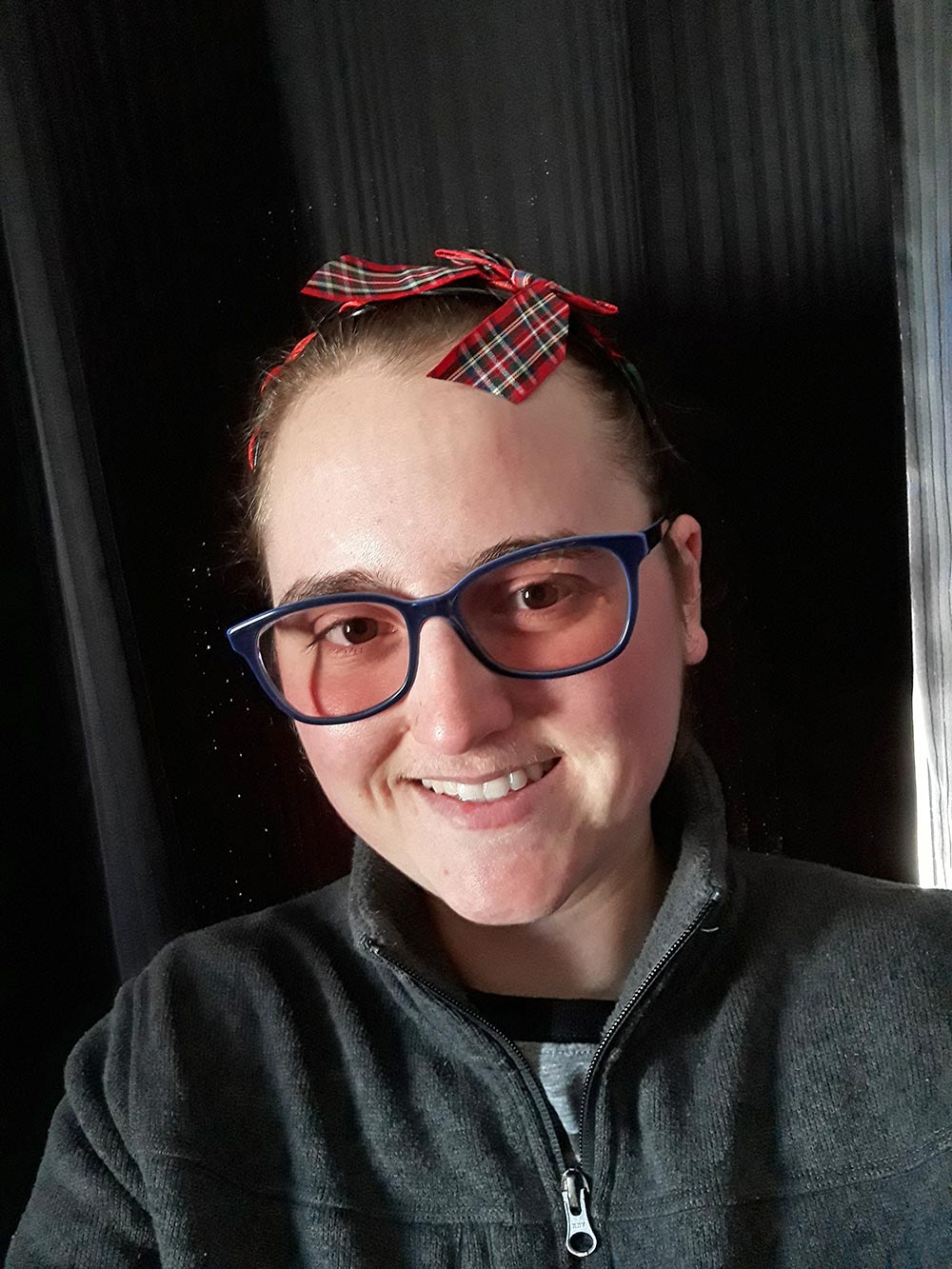
SHIR
Shir shares, “Horse Sense” on biane.org “Survivor’s Story”. Shir and her husband Randy started RanShir this summer at their home outside of North Platte, Nebraska. Taking in horses and everyday people that have suffered trauma, to heal each other by working together, just made sense.
According to Shir, “Ranshir and the pandemic are tied together” just like all the undiagnosed and untreated TBIs that Shir suffered throughout her life. Shir explains, “it is never just having gone through trauma, or suffered a TBI, or having any other challenges in life,” it can be all these circumstances happening at once.
Shir states, “We have not really allowed the pandemic to affect any of us because we know that whatever is in front of us we will find a way to follow through and get done what we need to do. We find a way, whether it’s doing it this way or that. Ranshir started because there was a dream in place, it just so happened there was a pandemic. So, I guess it would be that we used horse sense. It just didn’t affect us.”
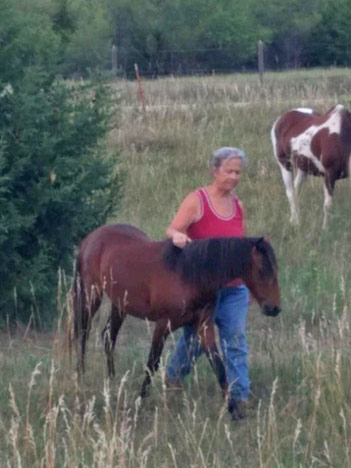
J
Mike Returns the Favor
J has been living with the effects of TBI much longer than Mike. He re-created his life at a specialized TBI facility. Mike and J became friends through one of the support groups. They began to spend time together outside the monthly meeting. J shares the struggles with the losses of his life before TBI, but he is grateful for the purpose he has found. In March, when the facility locked down due to the rise in COVID, J was not able to leave for church, his volunteer work, or outings with friends and family including Mike. They stay in touch through the support group, that went online, and frequent calls.
When Mike felt like everything had been taken away by his brain injury, it was J who taught him to redefine what “everything” really meant. Friendship, faith, family, that is what makes a life worth living. Mike’s Story is detailed on biane.org “Survivor’s Story” from August 2019.
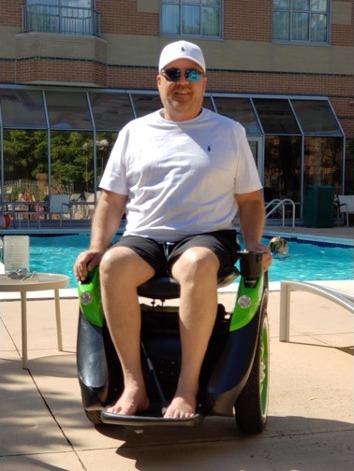
TAMMY
“A Caregiver’s Hope” on biane.org “Survivor’s Stories” is Tammy sharing her personal journey as a mom whose daughter suffered from cognitive challenges related to Lyme Disease and multiple TBIs as a teenager, Since then, Tammy experienced her own TBI with lasting vestibular effects while continue to work with individuals suffering brain injuries, as a Speech/Language Pathologist and Therapist. Tammy explained, “Using my personal and professional experiences, I’m helping people with the effects from COVID but it is different than working with individuals living after TBI. We are learning a lot as we work to find treatments that helps.”
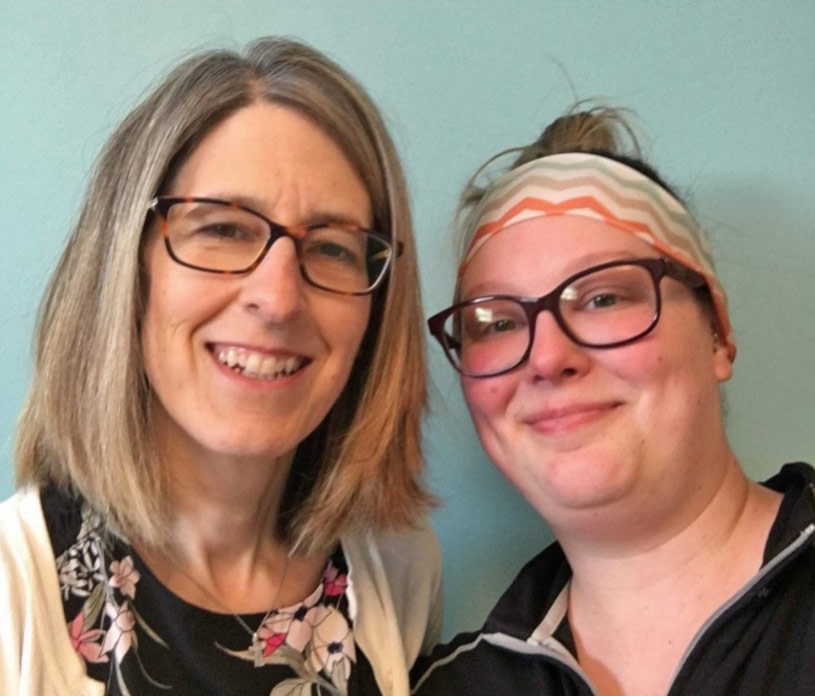
LESLIE
Leslie’s experiences since suffering a TBI as a semi-driver are journaled in her, “Story of Empowerment” on biane.org. Leslie began working with BIA-NE to navigate systems to receive the help she needed for diagnosis, treatment and establishing benefits. Along her journey, Leslie has become an advocate and peer to others struggling with the effects of TBI. Sharing her experiences with the Lt. Governor of Nebraska and supporters during the signing of the March Brain Injury Awareness Month Proclamation. “I am sharing my story with you knowing I am just one of thousands in this state living with the effects of a brain injury. Each one has a story, is on an adventure of their very own. Each has their own ‘bag of tricks’ to help that adventure be a positive one. Just as I am. I am NOT alone and I’m fighting for awareness, not only of myself, but for all Nebraskans. After all I do have a voice. I am not a victim of any system and that IS empowering!”
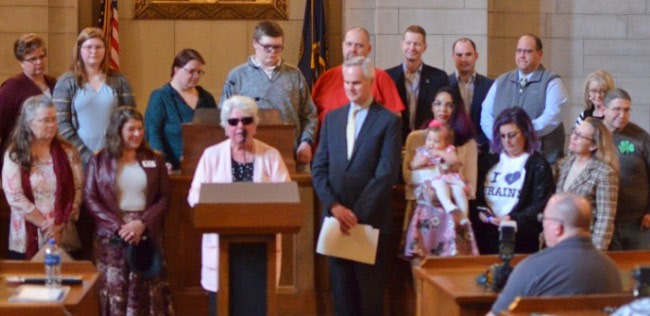
BRANDON AND DARIN
We’ve Found New Ways to Connect with Our Community
Washington State saw some of the first cases of COVID in the US and safety restrictions started in early March 2020. The Brain Injury Alliance of Washington sprang into action to pivot our operations and serve our community safely and holistically.
BIAWA has been offering in-person Brain Health & Wellness classes at several Puget Sound locations since 2015. Restrictions on in-person gatherings required the BIAWA team to collaborate with instructors to find a new way to offer classes. Enter Zoom. Since June 2020, BIAWA’s classes have gone virtual. The result: classes are no longer constrained by location and participants from around the state are able to join! Bonus: Participation in classes has doubled, and in some cases tripled! Moving forward, BIAWA has recognized the importance of the virtual platform and will continue to offer virtual classes to reach individuals across Washington State.
In an additional response to COVID-19, BIAWA collaborated with Goal 17 Media to launch the Brain Injury Today Podcasts as a way to help connect and inform the brain injury community. We have shared some fabulous stories, insights and resources for listeners. Content that informs, inspires and gives hope.
One of our first podcasts was a Coast-to-Coast with Brain Injury E.D.’s, including Iowa Executive Director Geoff Lauer and New York Executive Director Eileen Reardon. To date, we have hosted shows with Brain Injury survivors, therapists talking about the difficulty of dealing with COVID and TBI, researchers, and how people find help – mixed in with a little comic relief.
In essence, our mission is to touch the community we love and serve during their time of need. Our research has shown us we were correct in our assumption: people wanted AND needed something. They have loved our podcasts.
Below are a couple of things we have heard a few say:
“Can’t wait to hear it! Awesome! Stay safe everyone!”
– Brandon Blake, email
“We enjoyed the first episode! My dad felt understood and not alone when listening to Allison’s story. He was very touched. Just saw episode 2 posted so we’ll check that out after our daily dinner this week. So glad we can feel connected to our community during such isolating times.”
– Kristy Millette, Instagram
“Thank you for this great resource during this time forced time of distancing. I enjoy listening to these podcasts during my walks with my dog. As someone who recently began working with the brain injury population and began doing a weekly support group this episode was very helpful!”
– La Canacas, Facebook
Podcasts can be found at www.BrainInjuryTodayPodcast.com, the @BrainInjuryWA Facebook page, or where listeners get their podcasts.
